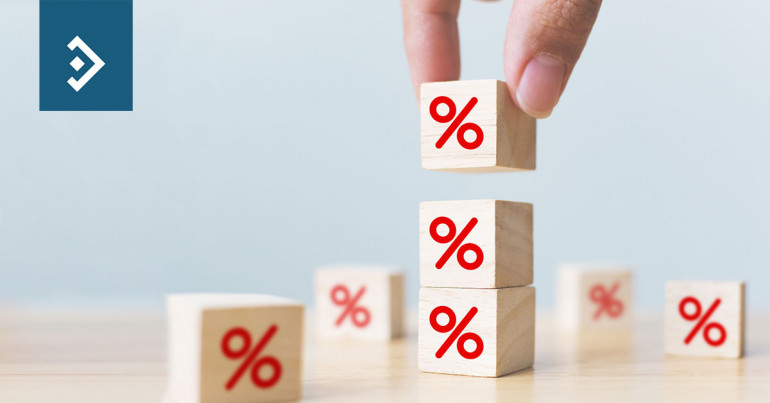
Broadbent sees BoE delaying taper
Morning mid-market rates – The majors
23rd July: Highlights
- New UK/EU trade war on the horizon
- Initial jobless claims jump above 400k
- Doves with teeth!
Appropriate response to current inflation? Nothing
This is based on a growing belief that given the level of support that has been pumped into the economy to keep it afloat during the Pandemic, inflation is both a small price to pay and a wholly expected outcome.
Strong demand and supply bottlenecks continue to drive prices higher, but the trend for higher prices is unlikely to persist.
Broadbent finds himself at odds with his MPC colleagues Dave Ramsden and Michael Saunders, who last week surprised markets by calling for tighter policy sooner rather than later.
One inflationary factor which seems to have passed MPC members by is the rise in the oil price and its effect on the retail price of fuel, most noticeably petrol at the pump.
Having fallen just below £1 per litre as the Pandemic struck, it is now approaching £1.50 a litre. This is a demand that has grown as the recovery has taken hold, and the price is unlikely to rise significantly higher.
The headline inflation data contains a reference to the price of fuel, and this is what the public sees, and markets react to, but the level of inflation ex-fuel and food is not rising as fast, although the effect of the reopening is having a significant effect.
The next MPC meeting will be livelier than has been the case recently, and the voting data will provide the markets with some clues as to how much longer the Bank can hold its current level of support in place.
Gertjan Vlieghe is likely to be on the side of the hawks, while Jonathan Haskell and Catherine Mann (who joins on 1st September) have recently shown themselves to be in favour of holding off.
The pound continued its recent recovery yesterday. Versus the dollar, it reached a high of 1.3787, closing at 1.3767.
Considering your next transfer? Log in to compare live quotes today.
This week’s higher initial claims a blip
Weekly jobless claims that were released yesterday and the initial claims rose again reaching 419k following a marginally upwardly revised number of 368k the previous week.
Analysts were quick to point out that while the picture is improving overall, there are still bumps in the road caused by the recent upsurge in new cases of the Delta Variant.
The average of new claims immediately before the Pandemic hit was around 265k, so there is still a fair amount of work to do. The economy is still experiencing an uneven recovery based upon both activity and geography.
It is easy to see that the Central bank would prefer to keep its powder dry as regards a tightening of monetary policy, despite worrying concerns over just how transitory growing levels of inflation are.
The current data shows that there are currently 9.5 million unemployed in the country, with 9.2 million job openings. Of course, skillsets and locations don’t come close to matching, so there is still a concern over what the level of employment will be once the recovery is complete.
The pace of vaccinations has fallen to worrying levels across the country over the past few weeks. The most recent data shows that 60% of adults have now received two jabs, which has allowed State Governors to continue to allow reopening of businesses that remained closed for over a year.
Speculation about the Fed’s likely pace of action continues to drive the dollar. Hawkish noises recently as well as a fall in risk appetite drove the currency through significant resistance, but the rally appears to have run out of steam and yesterday the dollar index fell back to a low of 92.50, but it received and close at 92.84, just above the pivotal level of 92.80
Looks like the recovery will take as long as it takes
The Bank left all current interest rates unchanged, as well as its level of asset purchases. The level of purchases will be at a significantly higher pace that was seen in the earlier part of the year. And continue until at least March 2022.
She went on to comment that the Bank expects to see interest rates at their current, or even lower levels, until they can reasonably predict that inflation will reach 2% well ahead of its projection horizon.
Put simply, the ECB sees no reason to raise rates until rising inflation hits 2% during the period of its projections.
This is without doubt a dovish outcome, and even the idea of allowing inflation to rise will be anathema to the more hawkish members of the Governing Council, Germany in particular.
Having explained the policy, Lagarde went on to rub salt in the hawk’s wounds by commenting that the point implies that there will be a transitory period, during which time inflation will be above target.
German Central Bank President Jens Weidmann believes that the inflation genie may not be as easy to coax back into its bottle as the doves believe.
The July review contained subtle changes in its wording. Inflation is expected to stabilize at 2% in the medium term, but this is the first time that the Bank has acknowledged that the target may be exceeded.
The dovish tone of the statement saw the euro fall under its own steam for the first time in some time.
It reached a low of 1.1757, closing at 1.1770.

About Alan Hill
Alan has been involved in the FX market for more than 25 years and brings a wealth of experience to his content. His knowledge has been gained while trading through some of the most volatile periods of recent history. His commentary relies on an understanding of past events and how they will affect future market performance.”



